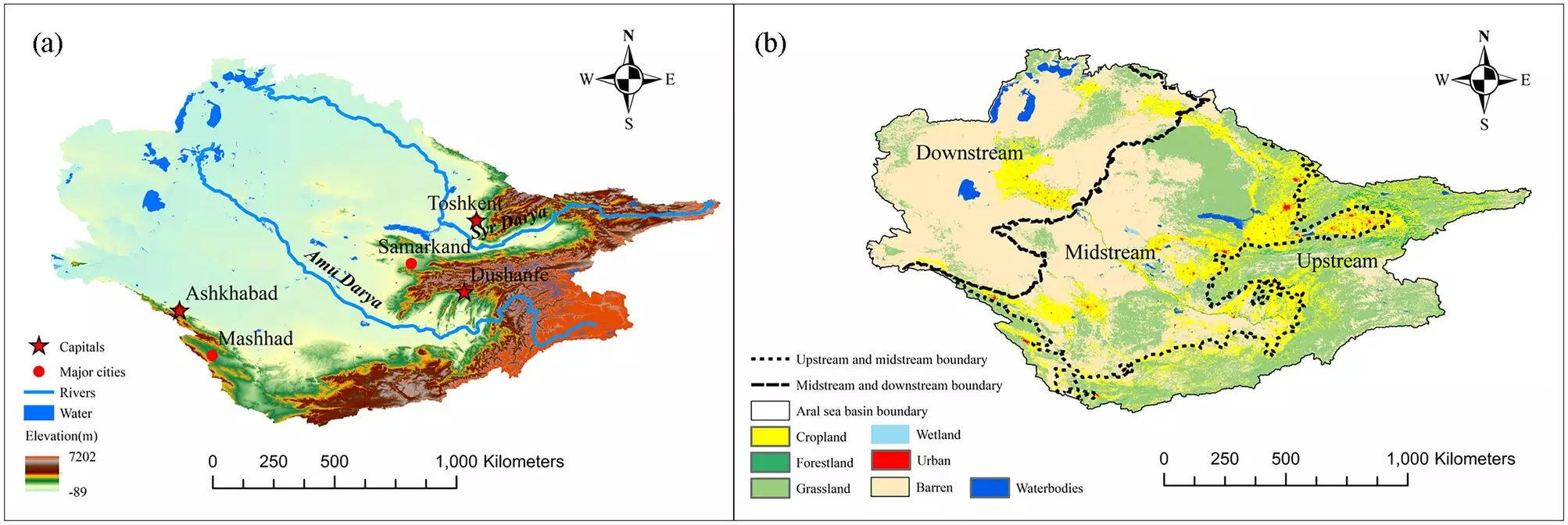The Aral Sea, situated in Central Asia, has been experiencing a reduction in its surface area as a result of both climate change and human intervention. This shrinkage has led to a severe ecological crisis in the region, significantly impacting the essential ecosystem services that the area provides.
A recent study, led by Prof. Yu Ruide from the Xinjiang Institute of Ecology and Geography of the Chinese Academy of Sciences, delved into the spatiotemporal changes of four key ecosystem services in the Aral Sea basin. These services include water production, soil conservation, carbon storage, and habitat quality. The researchers utilized advanced models such as the Future Land Use Simulation Model (FLUS) and Integrated Valuation of Ecosystem Services and Trade-offs (InVEST) to simulate land use dynamics and ecosystem service provision in the region.
From 1995 to 2020, the study revealed significant shifts in land use within the Aral Sea basin. These changes included a substantial decrease in water area by 49.59% and a rapid expansion of urban areas by 504.65%. Moreover, there was a continuous decline in cropland, forestland, and grassland, alongside the ongoing expansion of bare land and urban areas. This shift highlighted the escalating conflict between agricultural needs and urban development in the area.
Future Projections and Loss of Ecosystem Services
Looking ahead to the future (2021-2100), researchers projected a significant loss of ecosystem services across the Aral Sea basin under the SSP245 scenario, which represents an agricultural degradation scenario. The study indicated a strengthening relationship between habitat quality and soil conservation, while the relationship between habitat quality, water quantity, and soil conservation is expected to weaken. Prof. Yu Yang emphasized the importance of carefully designing restoration plans for the region due to the existing synergies and tradeoffs between different ecosystem service combinations.
This study provides valuable insights into the dynamic changes of ecosystem services in the Aral Sea basin. It serves as a reference for policymakers and land managers to develop sustainable land management plans that prioritize the conservation and restoration of ecosystem services in the region. By understanding the interplay between human activities, climate change, and ecosystem health, stakeholders can work towards preserving the unique and valuable ecosystem of the Aral Sea basin for future generations.


Leave a Reply